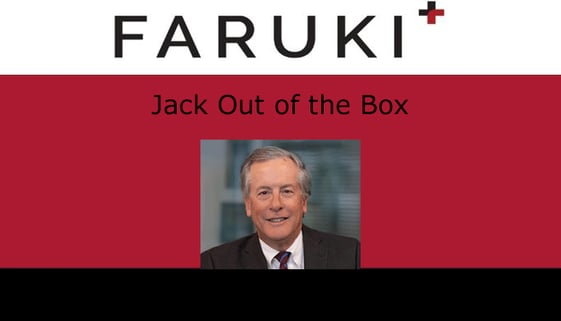- July 24, 2023
- Jack Greiner
- Jack Out of the Box
 An Ohio appellate court recently demonstrated how a court may enjoin a party from libeling someone, without violating the Constitution. It's a fine line, but it can be done.
An Ohio appellate court recently demonstrated how a court may enjoin a party from libeling someone, without violating the Constitution. It's a fine line, but it can be done.
In 2020, Troy Holtrey filed a complaint against Douglas Wiedeman alleging several causes of action. One of those causes of action was a claim of defamation. To support this claim, Holtrey alleged Weideman had defamed him, and prevented him from being hired as the head coach of Springboro High School's varsity boys' basketball team for the 2020-2021 school year, by falsely accusing him of engaging in "criminal and/or improper conduct" that involved the "stealing and/or misappropriating of money" in connection with his prior roles as the school's varsity boys' basketball coach and/or the athletic director between the years 1991 to 2012. Holtrey also requested in a separate cause of action the trial court to permanently enjoin Wiedeman from making any similar defamatory statements about him in the future.
In November 2022, following a three-day jury trial on Holtrey's defamation claim, the jury returned a verdict in Holtrey's favor, awarding him with $120 in compensatory damages.
Following the jury verdict, the trial court issued a decision granting Holtrey's request for a permanent injunction against Wiedeman. In so doing, the trial court determined that, although Holtrey's request for such an injunction against Wiedeman would serve as a prior restraint on Wiedeman's speech: "a judicial determination has now been made that Wiedeman's statements regarding Holtrey's alleged engagement in criminal or improper conduct involving the stealing or misappropriating of money during his career as head basketball coach or athletic director were defamatory."
A prior restraint, as the term suggests, is an order from a court telling a person not to say something before the person speaks. This is the ultimate chilling effect, and for this reason, courts rarely issue such an order. In our system, we value speech so much that we'd rather see people speak and deal with the consequences than shut it down up front.
It's important to note the timing in Holtrey's request for the injunction. He did not ask the court to issue a preliminary injunction enjoining Wiedeman from speaking while the case was pending, but before a final judgment. The Court wouldn't have issued such an order, as that would most certainly constitute prior restraint.
Holtrey instead waited for a finding that Wiedeman's comments were defamatory and then asked for an injunction prohibiting Wiedeman from repeating those specific charges. In the court's view, this was a sufficiently "limited injunctive remedy" to satisfy constitutional concerns. Note that the injunction didn't prohibit Wiedeman from disparaging Holtrey based on some other matter, it simply provided that, having found this specific content defamatory, it could order Wiedeman not to repeat it.
The Court of Appeals agreed with the trial court and affirmed the ruling. If Wiedeman wants to keep fighting, his next stop will need to be the Ohio Supreme Court. Stay tuned.
